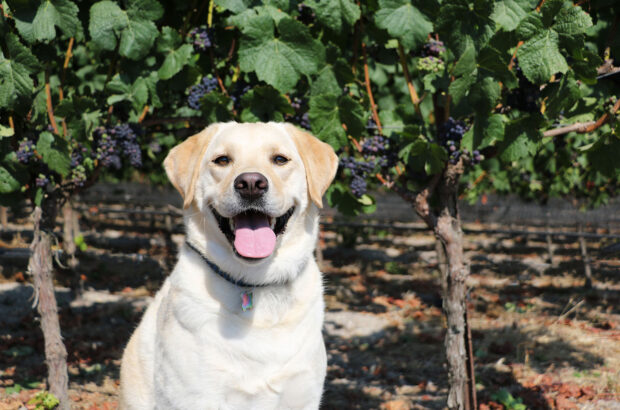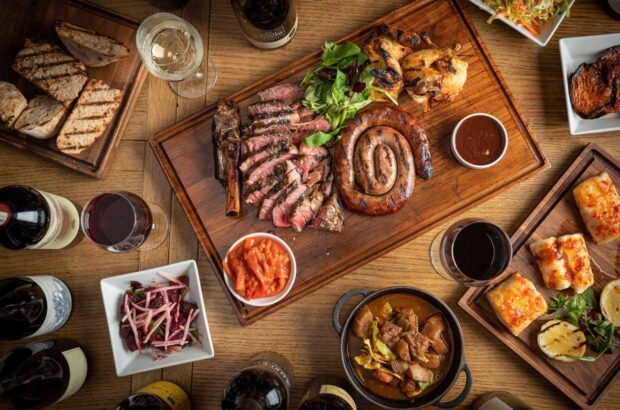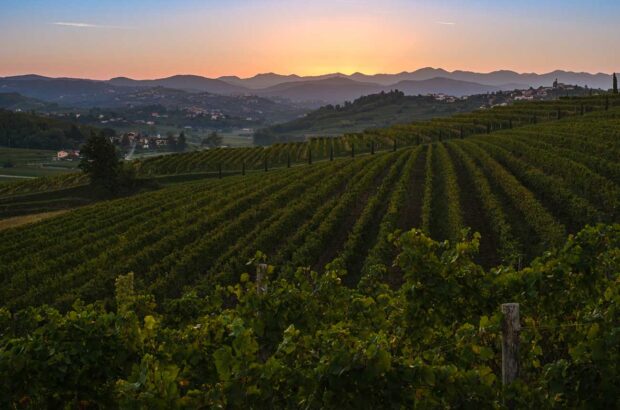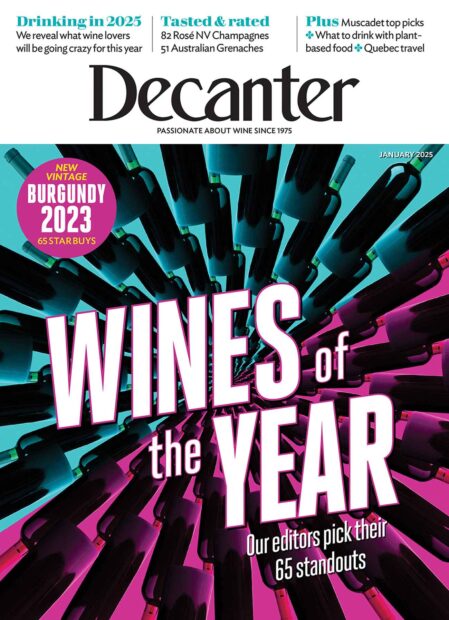Why it makes the Decanter hall of fame...
Wine Legend: Beaulieu Vineyard, BV, Georges de Latour, Private Reserve 1947
Bottles produced N/A
Composition 100% Cabernet Sauvignon Yield N/A
Alcohol N/A
Release price N/A
Price today $1,100
A legend because…
In the 1930s, Beaulieu Vineyard persuaded the Russian-born winemaker André Tchelistcheff to come over from France and make its wines after Prohibition ended. He succeeded Leon Bonnet as winemaker, and it was Bonnet who, encouraged by BV founder Georges de Latour, created the Georges de Latour Private Reserve in 1936. Latour was keen to create what today would be called an icon wine, one that fully represented the finest Cabernet Sauvignon vineyards in the Rutherford sub-region and followed the great winemaking traditions of Bordeaux. It was named after BV’s Bordeaux-born founder, who established the property in 1900, planting 40 hectares in Rutherford, though his first vintage was 1909.
Looking back
Tchelistcheff was still firmly in place at BV in 1947 (only retiring in 1973) and was rapidly becoming a revered figure in Napa’s winemaking circles, with many disciples working at other wineries in the valley. Fine wine was still a niche product in the 1940s, when fortified styles dominated the market and wine quality overall was not that high. The golden era for BV came to an end in 1969, when the property was sold to the giant Heublein drinks company, which rapidly increased volumes and downgraded quality. Recent decades have seen steady improvements in quality at the top end of the range.
The vintage
This was an exceptional year for Cabernet Sauvignon in Napa Valley; however, BV was unable to provide more detail on specific conditions at its vineyards.
The terroir
Rutherford soils are essentially gravelly loam on gently sloping and well-drained alluvial fans. Tchelistcheff detected an earthy note in the wines grown here, and dubbed that character ‘Rutherford dust’. Although many Rutherford Cabernets are of exceptional quality, it would be hard in a blind tasting to pick them out on the basis of their ‘dustiness’.
The wine
The Private Reserve was aged from the outset in French barriques, but after the war it was difficult to import barrels from France, so until 1989 the Private Reserve was aged in American oak. This was also a stylistic choice. In an article by Frank Prial, Tchelistcheff declared: ‘I changed to American oak because I wanted more flavour, a more aggressive wine. Today I dislike the American oak.’
The reaction
James Laube in 1991 wrote: ‘A claret-style wine – dry, elegant and meaty, with spice and generous, plummy Cabernet flavours on the finish.’ In the late-1990s he tasted it again: ‘From an excellent vintage, it shows incredible richness, complexity and harmony for a wine past its 50th birthday. There is still much to admire in this amazing wine that seems suspended in time.’
Michael Broadbent, writing about his first tasting of the wine in 1972, noted that it was ‘the first really top-class Napa Cabernet Sauvignon I had ever tasted’. In 1999 he found it ‘medium-deep; fragrant, autumnal bouquet, very interesting and very attractive, soft entry, dry finish.’
At the same tasting Steven Spurrier noted: ‘Typical minty nose, ripe, almost sweet fruit and a touch of volatile acidity, balanced with some life ahead of it.’
Stephen Brook also tasted the wine on the same occasion in 1999. It showed little sign of age; the nose had ‘dense, rich, cassis aromas’, while on the palate it was ‘medium-bodied and assertive’, and was ‘beginning to lose some fruit. Herbs and pepper underlay the fruit, but there’s not much depth or complexity. It’s still lively, long, and has good concentration, filling out with aeration’.
More wine legends:

Wine Legend: Mascarello, Monprivato, Barolo 1970
Why it makes the Decanter hall of fame...

Wine Legend: Bonneau du Martray, Corton-Charlemagne Grand Cru 1990
What makes Bonneau du Martray 1990 legendary...

Wine Legend: Ridge California Cabernet Sauvignon 1970
Why it makes our hall of wine fame...







